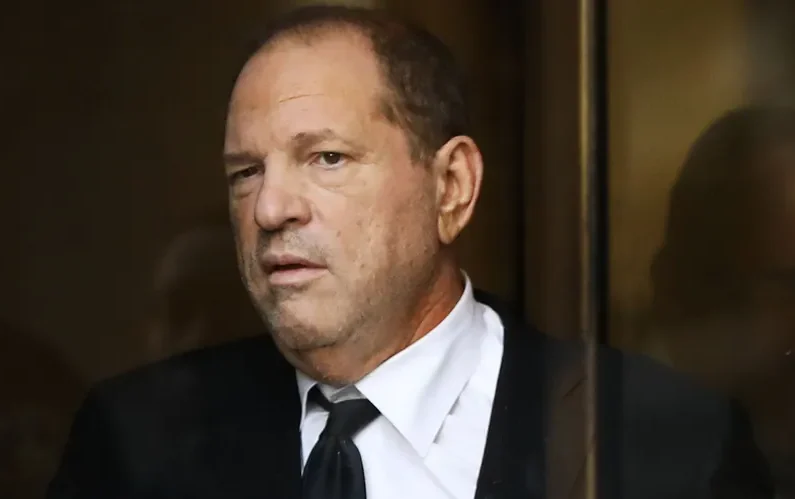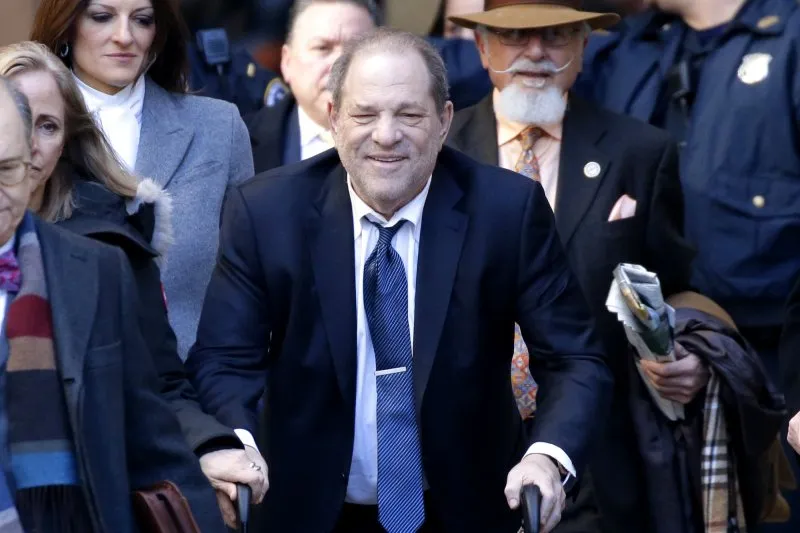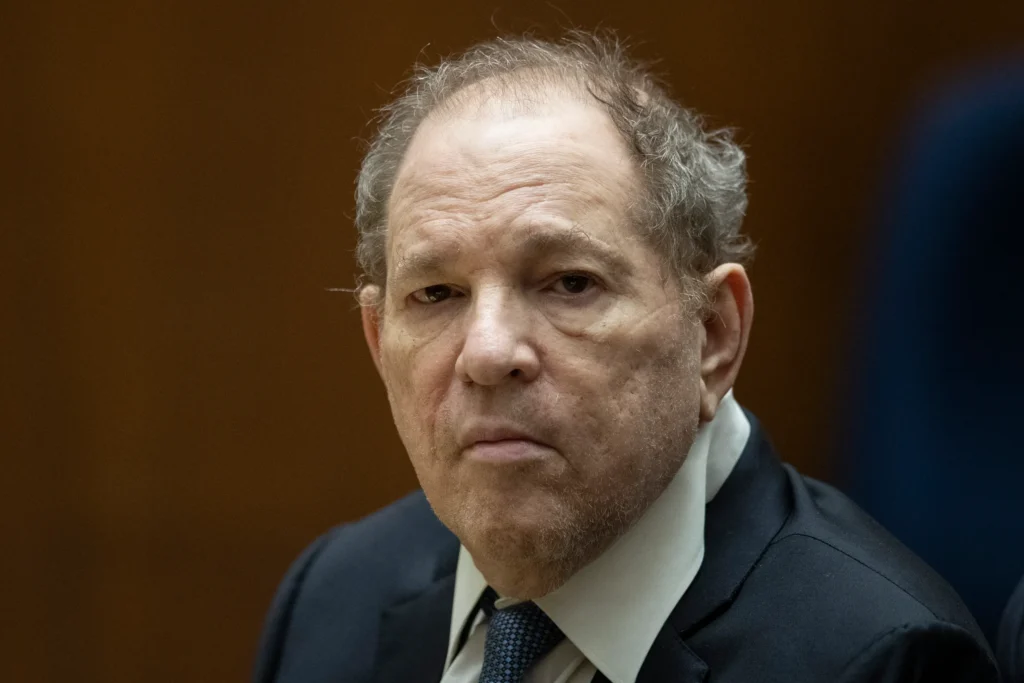Harvey Weinstein’s rape conviction was overturned

Harvey Weinstein’s rape conviction was overturned; as this Thursday, April 25, 2024, in New York, a judge so ruled.
Harvey Weinstein’s rape conviction was overturned and clears the way for a new trial.
In this regard, the state Court of Appeals found that the judge in the #MeToo movement trial prejudiced the former movie mogul with improper rulings, including the decision to allow women to testify about allegations that were not part of the case.
Harvey Weinstein’s rape conviction was overturned by the New York Court of Appeals by pointing out errors in the 2020 court proceedings that resulted in a 23-year prison sentence for the producer.
This decision, on which there is no appeal, was based on the fact that the judge improperly called as witnesses several women who claimed to have been victims of the man, when the accusations they uttered were not part of the facts judged, NBC News indicated.
“The remedy for these enormous errors is a new trial,” noted the ruling, approved by a 4-3 majority of justices. The court concluded that the trial court erroneously admitted testimony of prior uncharged sexual acts against persons who were not the complainants of the underlying offenses.

READ MORE: BIZARRAP AND SHAKIRA AT COACHELLA FULL EXCITEMENT.
Harvey Weinstein’s rape conviction was overturned
Juda Engelmayer, a spokesperson for Weinstein, said they were “thrilled with the court’s decision.”
However, they still face a long road ahead in California, where Weinstein was also convicted in 2022 of rape and sentenced to 16 years in prison, CNN noted.
The overturning of the conviction against Weinstein, who was serving two prison terms in a New York prison for sexual abuse-related offenses, has generated controversy.
READ HERE: DAVID BECKHAM SUES ACTOR MARK WAHLBERG ¿WHY?
Judge Madeline Singas, in the dissenting opinion, accused the majority of “whitewashing the facts to fit a he-said/she-said narrative” and failing to recognize that the jury was authorized to consider Weinstein’s past assaults.
After it was confirmed that Harvey Weinstein’s rape conviction was overturned, it was recalled that Weinstein, 72, had been convicted in New York in 2020 of a first-degree criminal sexual act and third-degree rape, based on the testimony of Miriam Haley and Jessica Mann.
In addition, three other women testified during the trial as witnesses to “prior bad acts” as prosecutors sought to show that the producer had a pattern of abuse.
This case reignited the debate about justice in sexual violence cases and the impact of the #MeToo movement; while some voices criticize what they see as a troubling trend of overturning guilty verdicts, others celebrate the decision as a necessary correction of miscarriages of justice.
The appeals court decision not only affects Weinstein but could also have broader implications for how similar testimony is handled in future trials involving sex crimes.
In October 2017, The New York Times and The New Yorker published dozens of sexual abuse allegations against Weinstein for harassment, sexual abuse and even rape.
As a result, he was expelled from his company and the Academy of Motion Picture Arts and Sciences and his wife filed for divorce, Weinstein was arrested and charged with rape in New York on May 25, 2018.
He was convicted of two of five felonies on February 24, 2020, and sentenced to 23 years in prison.







